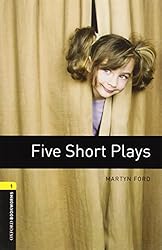THE RIGHT THING TO DO: A QUICK REVISION
1. CHARACTERS AND CHARACTERISTICS
A. Rebecca, David and Patrick
- Selfish- as they do not know him, they think that it s their responsibility to help the unconscious man
- Irresponsible - they keep on pushing the responsibility to one another
- Insensitive - the unconscious man may be in great danger but they are not concerned about the man at all
- Claiming undeserved credit - they convinced themselves that they are the only person responsible in saving the man's life.
- Responsible - without thinking twice she stops to help the unconscious man
- Quick-thinking - she knows what needs to be done to help the unconscious man
- Assertive - she is able to instruct three onlookers to bring water, call the ambulance and give the man his pills
- Sensitive and observant - she realises that the pills is important and that the man is talking about the pills.
- He is in poor health and collapses in the middle of the street due to his heart problem
- He is a grateful and pleasant person as he graciously thanks those who have helped him.
A. Responsibility and civic duty
- Rebecca, David and Patrick stop and look at the unconscious man on the street but they do not bother to help him as they do not know the man. They do not think that it is their responsibility to help him. On the other hand, the woman in blue is a quick-thinking person and she quickly gives orders to the people at the scene to help the man as she considers it is her civic duty and responsibility to help the unconscious man.
- The woman in blue is able to take charge of the situation. She knows what needs to be done and gives orders to the three people who seem to be at lost. Without her, the man may still be lying unconscious on the street.
- Once Rebecca, David and Patrick know that the man is a famous person, they are glad that they have helped him and take the credit for helping him. In contrast, the woman in blue helps the man regardless his identity.
- We must help help other people regardless their race, religion or status. The woman in blue has no idea who the man is but she helps the man. She has a different attitudes from the three onlookers who are extremely happy when they learn that the man is a famous chef.
- We must help with sincerity. We should not take credit for helping others and expecting something else in return. The woman in blue illustrated this as she quietly disappers from the scene once the man is all right.
- Taking credit when it is not deserved is wrong. The woman in blue disappears from the scene and the three people deny her role in saving the man. In fact, they say that she refuses to help in the first place and take all the credit.
- The tone is serious as there was a man lying on the street. once the ambulance has taken the man to the hospital, the tone and mood becomes lighter and relieved as Rebecca, Patrick and David take the credit for saving the man.
- The language used is fairly simple and easy to understand and the drama is acted out in chronological order and it is told in a dialogue.
- The play has only one scene.
- The author uses irony to convey the messages as the three people refuse to help the man in blue but after being instructed by the woman in blue they help the man. Thus, they deny her role in helping the man and take the credit themselves.
- The play illustrates sheds light of the attitude of some people in our society.
MODEL
QUESTION
1. Based
on the drama that you have chosen, write about a character you like/admire/your
favourite character. Give reason for your choice.
2. Based
on the drama that you have chosen, write about the behavior of a character that
you do not like/hate/dislike. Give reasons for your choice.
3. Based
on the drama that you have chosen, write about a character you think suffers a
lot. Give reasons for your choice.
4. Based
on the drama that you have chosen, write about a character that you think is
helpful. Give reasons for your choice.
5. Based
on the drama that you have chosen, write about characters that work together.
Give examples of how they work together to support your answers.
6. Based
on the drama that you have chosen, write about a character you would or would
not like to have as a friend. Give reasons for your choice.
7. Based
on the drama that you have chosen, write about a character you think is
unkind/cruel/wicked/evil. Give reasons for your choice.
8. Based
on the drama that you have chosen, write about a character that shows responsibility in a danger situation. Give reasons for your choice.
9. Based
on the drama that you have chosen, write about a character who is caring. Give reasons for your choice.
10. Based
on the drama that you have chosen, write about a civic consious that you think is
interesting. Give reasons for your choice.
11. Based
on the drama that you have chosen, write about a character that you sympathise
with. Give reasons for your choice.
12. Based
on the drama that you have chosen, write about a character that is persistent
and determined to help others. Give reasons for your choice.
13. Based
on the drama that you have chosen, write how responsility influences a
character’s decisions.
14. Based
on the drama that you have chosen, write about a character who is kind. Give
reasons for your choice.
15. Based
on the drama that you have chosen, write about two characters. Explain how they
are similar and how they are different. Give reasons for your choice.
16. Based
on the drama that you have chosen, compare and contrast two characters. Support
your answer by giving evidences from the drama.
17. Based
on the drama you have chosen, explain why you find it interesting. Give reasons
for your answer.
18. Do
you like the drama you have studied? Explain why you like or dislike the drama.
19. Based
on the drama you have chosen write the theme of responsibility and caring. Give
reasons for your choice.
20. Based
on the drama that you have chosen, write about the theme of the drama.
21. Based on the drama The Right Things To Do by Martyn Ford , relate an incident about
responsibility.
22. Based
on the drama you have chosen, write about a situation or event where good
triumphs over evil.
23. Based
on the drama that you have chosen, write about a situation that you think is
tense. Give reasons for your choice.
24. Based
on the drama that you have studied, write an event which made you happy. Give
reasons for your answer.
25. Based
on the drama that you have learnt, write about an event that teaches you a
valuable lesson. Give reasons for your choice.
26. Based
on the drama you have chosen, write about an important place where many things
happen. Give reasons for your choice.
27. Based
on the drama that you have chosen, write about the importance of having
friends. Give reasons from the drama to support your answer.
28. Based
on the drama that you have studied, write about one thing that you have learned
you should not do. Give reasons for your answer.
29. Based
on the drama that you have chosen, write about how people should behave towards
each other. Give reasons for your answer.
30. Based
on the drama that you have chosen, write about one good lesson that you have
learned from it. Give reasons for your answer.
MODEL QUESTION AND RESPONSE
Short Stories - Tanjung Rhu (leaving No Footprint) by MinFong Ho
- Leaving (Changing their Skies) by M.G. Vassanji
Drama - The Right Thing To Do (Five Short Plays) by Martyn Ford
Choose one of the text above and answer the question below.
Write about the moral values you have learnt from the text. Give your reasons with close reference to the text. (15 marks)
Step 1: Read and understand the question
- moral values- more than one moral values
- reasons - provide more than one reasons
- state the text chosen and the author
- write a short synopsis
- Body 1 - reason 1
- Body 2 - reason 2
- Body 3 - reason 3
- Write a suitable conclusion ( refer to the question asked)
I studied the drama The Right Thing To Do by Martyn Ford. The drama is about a man lying in the street. Three
different people stop and look, but nobody helps him. After that a
woman sees him and runs to help him. She orders the people that are looking to bring water and call an ambulance. After the man takes his
pills the man he becomes better. He is a famous
chef. The people who are ordered by the woman, are very happy because they thought they had saved the chef. There are many moral values that we can learn from this drama.
Firstly, we
must help help other people regardless their race, religion or status.
The woman in blue has no idea who the man is but she helps the man. She
has a different attitudes from the three onlookers who are extremely
happy when they learn that the man is a famous chef.
Secondly, we must help with sincerity. We should not take credit for helping others
and expecting something else in return. The woman in blue illustrated
this as she quietly disappears from the scene once the man is all right.
Lastly, taking
credit when it is not deserved is wrong. The woman in blue disappears
from the scene and the three people deny her role in saving the man. In
fact, they say that she refuses to help in the first place and take all
the credit.
In a nutshell, we must help others who are in need. Just because something is not our our problem, it does not mean that we should not do anything. Being a civic conscious person is very beneficial.

